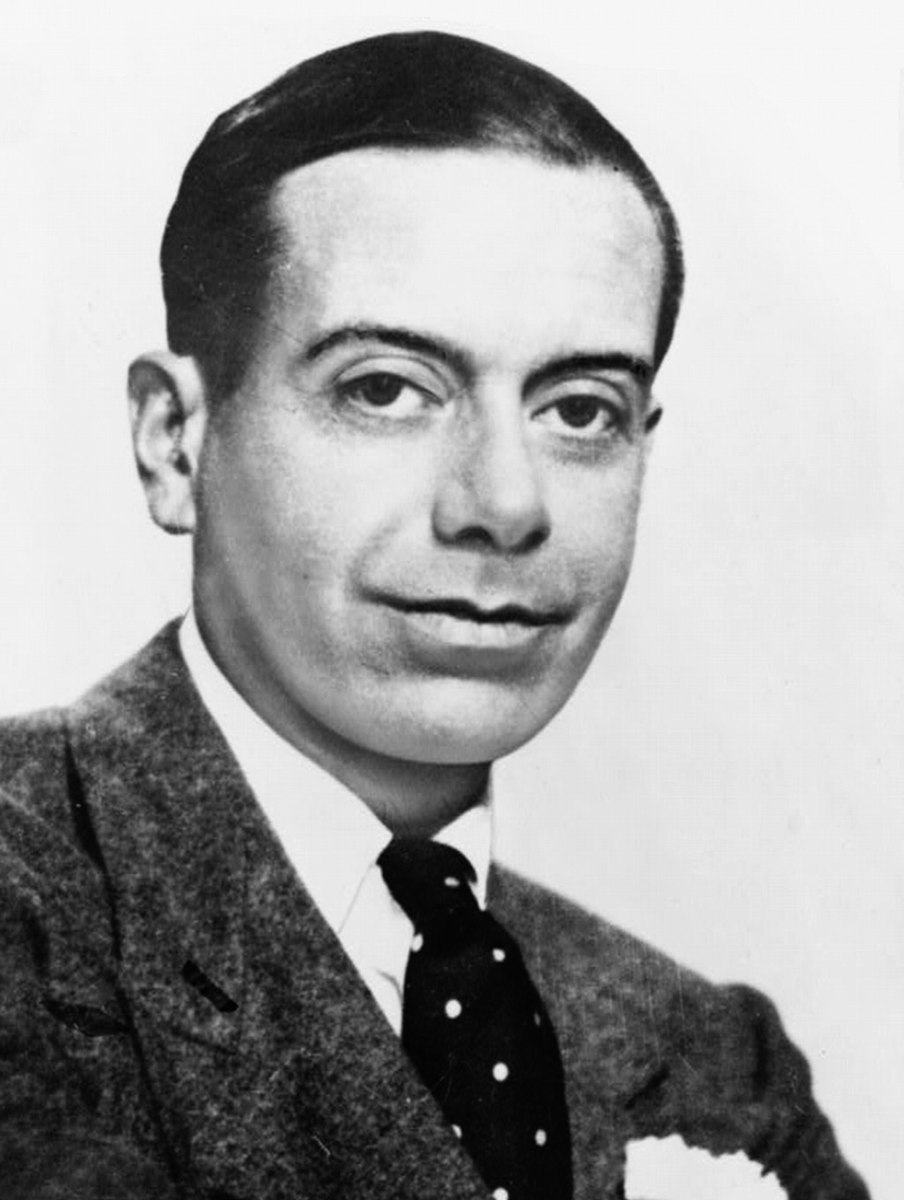
Cole Porter and a Vanished Culture: Brewster and Mussolini
• Memo from a Vanished Time: Diana Rigg and Maggie Smith sing Cole Porter…
“You’re the top: You’re a Brewster body”
Downloading a Cole Porter classic, “You’re the Top,” you realize how much the lyrics have changed. Some verses were altered, others just dropped—because today they’d only baffle people. Take for example this favorite—a verse now extinct because it’s mostly unrecognizable:
You’re the top! You’re a Ritz hot toddy.
You ‘re the top! You’re a Brewster body.
You’re the boats that glide on the sleepy Zuider Zee,
You ‘re a Nathan Panning, You’re Bishop Manning, You’re broccoli!
Brewster and Company was a carriagemaker founded by James Brewster in New Haven, Connecticut in 1810. It lasted 127 years, felled by the Great Depression in 1937. At the turn of the century, Brewster began building bodies for horseless carriages. They were, as Cole Porter declared, the top of the line. They combined the finest craftsmanship with the best materials. A Brewster body meant the owner had arrived.
Old money or new, it didn’t matter. If you were really loaded you’d order two Brewster bodies for your Packard or Rolls-Royce chassis: a classy open number for the summer, a snug town car or limousine for the winter. In 1915-25 they even built their own line of opulent motorcars.
Back to Cole Porter and his verse. People still know what the Zuider Zee is. And I suppose a few have heard of the Ritz Hotel and the hot toddy. Broccoli was a kind of boutique vegetable in the 1930s.
But who are Nathan Panning and Bishop Manning? You have to click the links to find out. The former is tricky. George Nathan was a leading theater and arts critic when Porter wrote his song. Even a bad review by Nathan was a good review for most. So, in the Porter lexicon, a “Nathan Panning” was a desirable thing.
Cole Porter

I’m too young to remember Cole Porter in his heyday. It was even before my time.
I was alive and sentient, however, for one of his last triumphs. That was the score for High Society, a charming comedy with Crosby, Sinatra, Armstrong and Kelly. But by then Porter had a legacy that would make him immortal.
“You’re the Top” is the leading number for the 1934 musical Anything Goes. Ethel Merman sang it in the show, I think with the original American lyrics.
Some prefer Ella Fitzgerald’s version, modernized though it is. Still, it too probably sounds like Greek to anybody born after about 1960. It would take an editorial cleaver to produce a version everyone understands today.
Diana Rigg and Maggie Smith use mostly understandable lyrics in this towering performance which really should not be missed. RIP.
The lyrics, says Wikipedia, “are particularly notable because they offer a snapshot as to what was highly prized in the mid-1930s and demonstrate Porter’s rhyming ability.” Wikipedia does us a service by offering all the original words in the song and links identifying them. Click here.
“You’re Mussolini, You’re Mrs. Sweeney…”
Richard Munro writes that the tune’s “highly prized” items included Mussolini. Mussolini? Yes, but the origin of that one is disputed. It’s not in the original. Some Porter experts contend that Mussolini was inserted by P.G. Wodehouse to replace the American lines in the British production of Anything Goes. Here’s the verse:
You’re the top! You’re an Arrow Collar.
You’ re the top! You’re a Coolidge dollar.
You’re the nimble tread of the feet of Fred Astaire,
You’ re Mussolini, You’re Mrs. Sweeney, You’re camembert!
(The Wodehouse line allegedly replaced “You’re an O’Neill drama, You’re Whistler’s mama” in the Porter original. It was feared that Britons wouldn’t know Eugene O’Neill, though they should have recalled James Whistler, who spent much time in England.)
Good grief, this is almost as obscure as a Brewster body! Arrow Shirts were prized by the well-to-do in those days. They are still around, made now in India.
A [President Calvin] Coolidge dollar was already fondly remembered when Porter wrote his song. It was worth a lot more than the dollar was worth in the Depression. “Mrs. Sweeney” was the socialite Margaret Campbell, a “debutante of the year” who famously married industrialist Charles Sweeney in 1933.
But why Mussolini?
If Wodehouse inserted Mussolini, I’m not surprised. He admired dictators. During the Second World War he made five broadcasts from Berlin. He was never charged afterward. Asked what to do with him, Churchill cracked: “Let him go to hell—as soon as there’s a vacant passage.”
But of course, Benito Mussolini was much admired in the 1920s and early 1930s. In 1927 Churchill praised his courageous handling of Italy’s economy. (WSC said that as Chancellor of the Exchequer. He was hoping Musso would cough up Italy’s war debt to Britain.)
Then in 1933 Churchill called Mussolini “the greatest law-giver among living men.” By that year he was eyeing Italy as a possible ally against newly-elected Adolf Hitler. (Things didn’t work out.)
After Mussolini fell in with Hitler, Churchill had other words: “This absurd imposter… frisking up at the side of the German tiger with yelpings not only of appetite—that can be understood—but even of triumph!”
Just so. I would like to think it wasn’t Cole Porter who put Musso into the song.








One thought on “Cole Porter and a Vanished Culture: Brewster and Mussolini”
I suppose we will never know for sure if Porter had a pinch hitter (P.G. Wodehouse) for the London show. but it remains a fact that it was a Porter show. He was depicted as the author and it was performed many times. So at the very least Porter had to have known it was inserted even if he did not originally write the lines (though this story that Wodehouse edited Porter’s verse is new to me.)
Comments are closed.